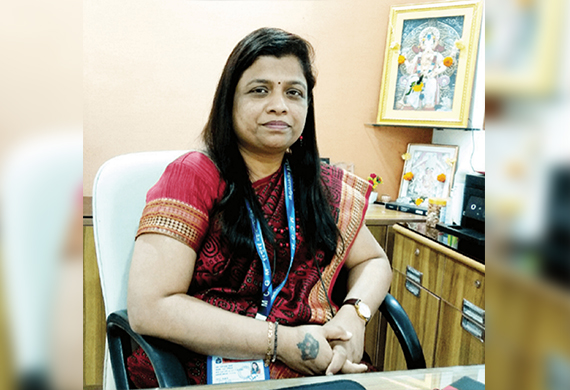
Women Need To Be Prepared for Disasters, says Chief Officer of DMD
By: WE Staff | Monday, 10 January 2022
Rashmee Lokhande feels that women need to be prepared for calamities. When a short circuit or a fire occurs in the kitchen, women's immediate instinct is to flee. Women, on the other hand, must be aware of emergency numbers, exits, fire alarms, emergency evacuation plans, and emergency plans at their children's schools, among other things.
Lokhande said, “women are more patient than men, are quick to learn and if you train a woman, she can train the entire family.”
She remarks that disaster management comes easily to women. She should be aware. She rose through the ranks to become the Chief Officer of the Disaster Management Department of the country's richest civic body, the BrihanMumbai Municipal Corporation (BMC). She has worked in the department as a security guard and now as the director.
After the Latur earthquake in 1993, she recalls, the department began operating from the basement. There were just six personnel in the control room at the time, with two phones, a fax machine, and a primitive wireless communication setup. It would respond to flooding situations, which are a recurring problem in the city, as well as weak, unlawful, and unsafe structures, sewage complaints, and other issues.
Since then, the agency has grown and changed, responding to landslides, several bomb blasts, building collapses, water logging, and the pandemic.
She was in her eighth month of pregnancy and on leave when she was summoned back after the city's serial bomb bombings. Ambulances had to be hurried, phones had to be answered, blood needs had to be addressed, family had to be reassured, and a great deal of coordination between hospitals, physicians, and blood banks was necessary. "I got to work at 5.30 p.m. and was on my feet until 4 a.m. until someone remembered and handed me a bottle of water and a chair," she laughs.
She recalls the Mumbai terror attack, which she and her husband narrowly avoided, now that she has a postgraduate degree in Disaster Management. When she was asked to come into the office late at night, she was at home in Worli. She and her husband were able to hail a cab to Dhobi Talao's Metro Theatre, where they were halted by police. Terrorists were in the Cama lane, they were informed, and they were instructed to return. They stepped out of the cab and chose to walk to work. They were fortunately picked up by an emergency car. They eventually understood that if they had continued walking, they would have ran into the terrorists.
She claims that the epidemic presented a unique problem. Every day, the Helpline received between 5,000 and 6,000 calls from individuals looking for information, hospital beds, physicians, medicine, ambulances, oxygen, and other services. There was a lot of anxiety and misinformation regarding the symptoms. BMC had to make certain that all employees were aware of the information that needed to be given. There was no room for misunderstanding or misinterpretation. As a result, a FAQ was created and distributed. She expresses her delight, “we tracked ambulances till they reached patients to the hospital.”
The demands were never-ending and exhausting. The department was also called upon to arrange for personnel to dispose of deceased remains, which was difficult and upsetting.
She believes that coping with calamities is hampered by ignorance and half-baked facts. She admits that there is a lot more that can be done to raise awareness about fire audits and emergency scenarios.






